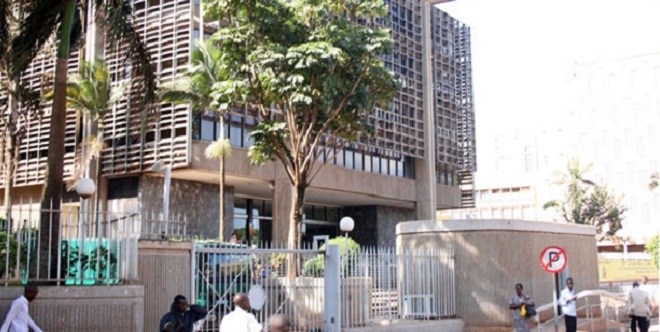
Prof. Emmanuel Tumusiime-Mutebile, the governor Bank of Uganda, said in a statement on March 20 that measures were expected to limit the impact of the coronavirus on the stability and economic growth in the financial sector.
He said the central bank will ensure that financial institutions supervised by the BoU continue to operate effectively, intervene in the foreign exchange market to smoothen out excess volatility arising from the global financial markets and ensure that there are contingency plans by financial institutions to guarantee the safety of customers and staff.
Mutebile also said the central bank has put in place a mechanism to minimise the likelihood of sound business going into insolvency due to lack of credit and would provide exceptional liquidity assistance for a period of up to one year to financial institutions supervised by it.
“Bank of Uganda will waive the limitation on the restructuring of credit facilities at financial institutions that may be at risk of going into distress due to the coronavirus pandemic,” he said.
He added that BoU will continue to engage Mobile Network Operations (MNOs) and commercial banks to further reduce fees on mobile money transactions and other digital payment charges in order to limit the use of cash and bank branch visits.
Many experts who analysed the BoU interventions have told The Independent that the measures appear aimed at insulating the financial sector, leaving businesses, companies, and citizens “on their own”.

President Yoweri Museveni who has regularly announced various measures to keep coronavirus at bay has not mentioned any fiscal measures the government was taking to keep business and companies or citizens afloat in the event of financial distress.
He has announced closure of all educational institutions, banning of public gatherings and closure of bars.
Matia Kasaija, the minister of Finance, Planning and Economic Development told Parliament on March 19 that the low activity in the industry and services sectors will result into loss of jobs, further leading to a decline in economic growth and an increase in the level of poverty.
He said at least 780,000 Ugandans may be pushed into poverty as the spread of coronavirus takes a toll on the country’s economy.
Kasaija also failed to state the measures that the government is putting in place to cushion the economy. Many legislators pushed for elimination of some taxes and reduction in electricity and water tariffs in this period of coronavirus.
What business wants
Business leaders like Moses Ogwal; director policy at the Private Sector Foundation Uganda (PSFU), which is an umbrella body for the private sector made up of 230 business associations, corporate bodies and public sector agencies, told The Independent that though the government efforts to ensure the health safety of citizens is commendable, those needing financial protection have been left to singly carry the coronavirus burden.
“The government has to do something with credit; it should relax the regulation,” Ogwal said, “the number of days a loan should be counted as a bad debt as well as loan repayment period should be increased as it has been done in Kenya so that business do not collapse over bank loans.”
Ogwal said there’s also need for the government to reduce on taxes; especially on products that will facilitate use of information and communication technology to drive business growth.
“Failure to do this means that in the event that the crisis increases, most of our people would lose jobs and worsen the current unemployment problem,” he said.
He said it is time for the Ugandan government to support local firms to minimise over- reliance on imports.
Amos Nzeyi, the Executive Chairman of Crown Beverages Ltd and former Chairman of the Uganda Manufacturers Association, said interest rates for businesses; especially in trade, manufacturing, tourism, transportation and construction should be reduced. Currently, interest rates stands at an average of 20 per cent per annum.
He said the government should immediately settle domestic arears to ensure that the private sector remains afloat.
“Settlement of this government debt will allow most private sector businesses to get back on their feet, pay their debts and loans, thus raising tax collections but more importantly stimulating domestic demand, to substitute depressed international demand,” he said.
“Repayment of loans will reduce industry non-performing loans, which will subsequently have a knock-on effect on interest rates.”
 The Independent Uganda: You get the Truth we Pay the Price
The Independent Uganda: You get the Truth we Pay the Price




The measures discussed very commendable but sadly do not go far enough.
What about the ordinary wanainchi?
You can save all the businesses but what about the demand?
Only the USA seems to get this Rescue packaging business almost right (not perfect but best of the rest)
I see this as a once in a lifetime opportunity for Business elites (they own the microphones and newspapers) to milk taxpayers funds.
Sadly this Crisis is still playing out and there are more serious twists ahead, unimaginable today!